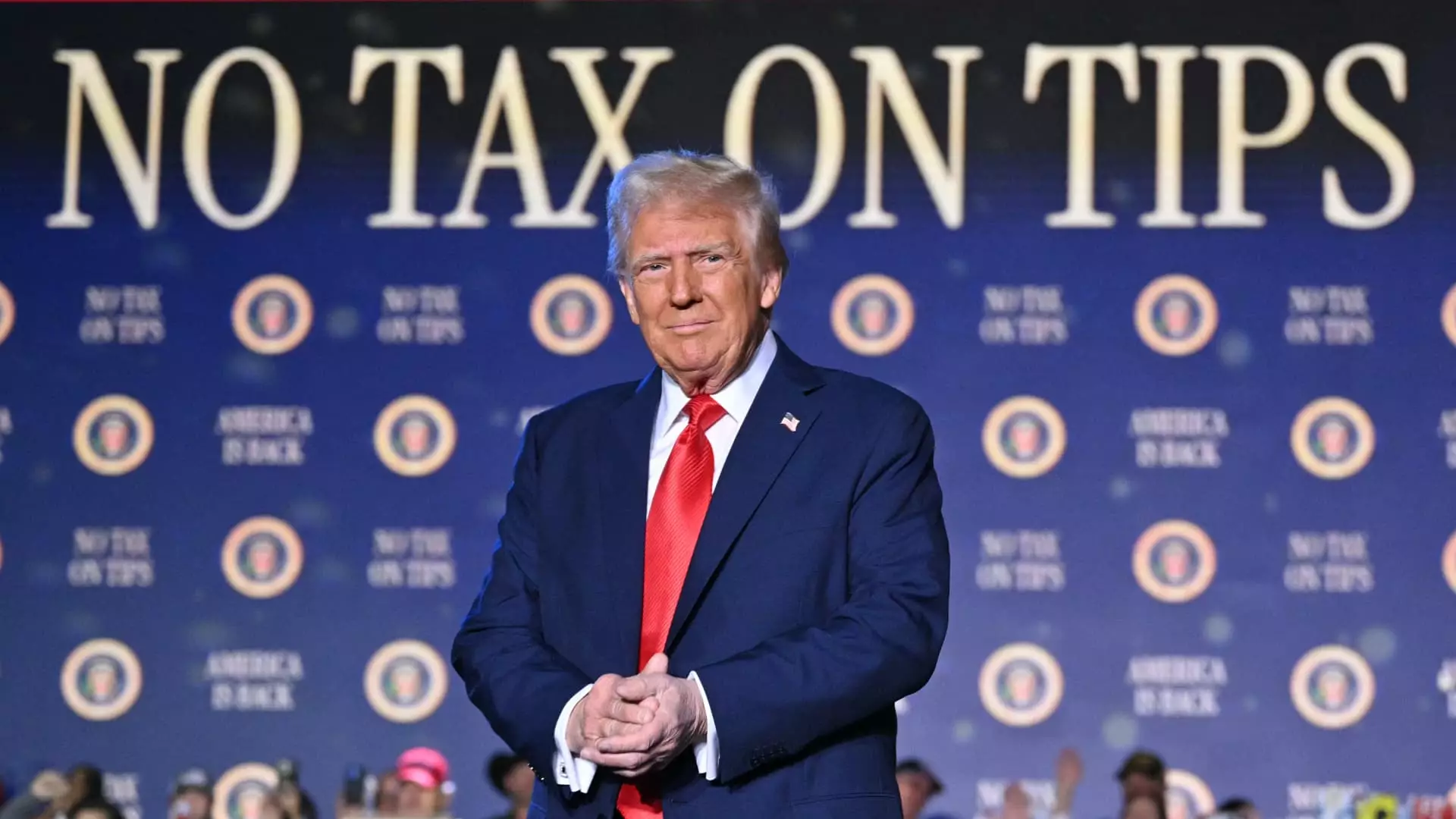In the grand political theater, promises are often crafted to appeal to specific constituencies, and President Trump’s recent legislation is no exception. The so-called “big beautiful bill” presents an enticing promise: a tax break that ostensibly shields tipped workers from additional taxation through a generous deduction. However, beneath the veneer of generosity lies a complex maze of ambiguities and contradictions that threaten to undermine the very fairness it claims to promote. The bill’s framing of “no tax on tips” is misleading; it suggests a total exemption that is simply not supported by the legislation. Instead, it offers a limited deduction, leaving the core issue—taxation on actual tips—largely untouched. This superficial promise masks a deeper reality: most tipped workers continue to face substantial tax obligations, and the supposed relief is more of a political illusion than a genuine benefit.
The Selective and Arbitrary Nature of Eligibility
One of the most glaring flaws in this legislation lies in its vague and exclusionary definitions of who qualifies for the tax break. While the legislation claims to cover “qualified tips,” the criteria for what constitutes eligibility remain shrouded in ambiguity. It highlights how critical timing and interpretation will be—clarifications from the IRS are expected only after a long waiting period, leaving many workers in limbo. Even more troubling is the narrow scope of qualifying professions. The legislation explicitly excludes certain professions such as actors, musicians, and performers, meaning that many individuals in the gig economy—who represent an increasingly significant portion of tipped workers—may not benefit at all. This inconsistency reveals a legislative approach driven more by political negotiation than a genuine concern for workers’ financial well-being. If the intent was to truly assist the most vulnerable, the law would need to adopt a more inclusive and clear framework rather than relying on vague definitions and phased-out thresholds.
The Reality of Voluntary Tips and the Gray Areas
The legislative language’s emphasis on “voluntary” tips introduces a murky realm of interpretation that could complicate enforcement and benefit distribution. In theory, only tips freely given by customers should qualify, but in practice, the lines are blurred. Mandatory service charges—often automatically added in large parties or for premium services—are placed under a cloud of doubt. Financial professionals like Ben Henry-Moreland argue that these obligatory charges do not truly fit the voluntary notion emphasized in the law. This discrepancy underscores a broader issue: the legislation is built on a fragile and often unclear foundation, making it susceptible to exploitation or misinterpretation. The risk is that legitimate tipped workers may find themselves caught between complex reporting requirements and sticky definitions, ultimately benefiting from a system that is as opaque as it is flawed.
The Disconnected Reality of Tip Reporting
Critical to the effectiveness of any tax-related legislation is compliance—yet here lies perhaps the most significant flaw: widespread underreporting of tips. Research indicates that a large portion of tips go unreported, particularly cash tips that never make it into official records. The legislation’s reliance on proper reporting—via forms like W-2 or 1099—is optimistic at best. Many workers lack the incentives or knowledge to accurately report all their tips, especially cash tips that are easy to conceal or forget. Furthermore, the increased thresholds for reporting requirements in platforms like PayPal or gig economy apps create new loopholes. These gaps foster an environment where the intended tax relief becomes, at best, a partial and unreliable benefit. If the core issue is unreported income, then a mere deduction does little to address the fundamental inequity—that the system is inherently set up for some tipped workers to slip through the cracks.
Why This Legislation Feels Like Lip Service
Ultimately, the so-called “big beautiful bill” appears more as political posturing than a meaningful attempt to address inequality faced by tipped workers. Its narrow focus, vague definitions, and reliance on voluntary compliance paint a picture of a legislative effort that is more about political wins than genuine reform. For millions of workers eking out minimal margins, this legislation offers little real relief. Instead, it perpetuates a system where tax benefits are piecemeal, eligibility is uncertain, and the larger structural issues—such as wage theft and unreported income—remain unaddressed. It’s a typical case of politics prioritizing spectacle over substance, leaving vulnerable workers to navigate a convoluted tax landscape that too often favors the wealthy and the well-connected.


Leave a Reply